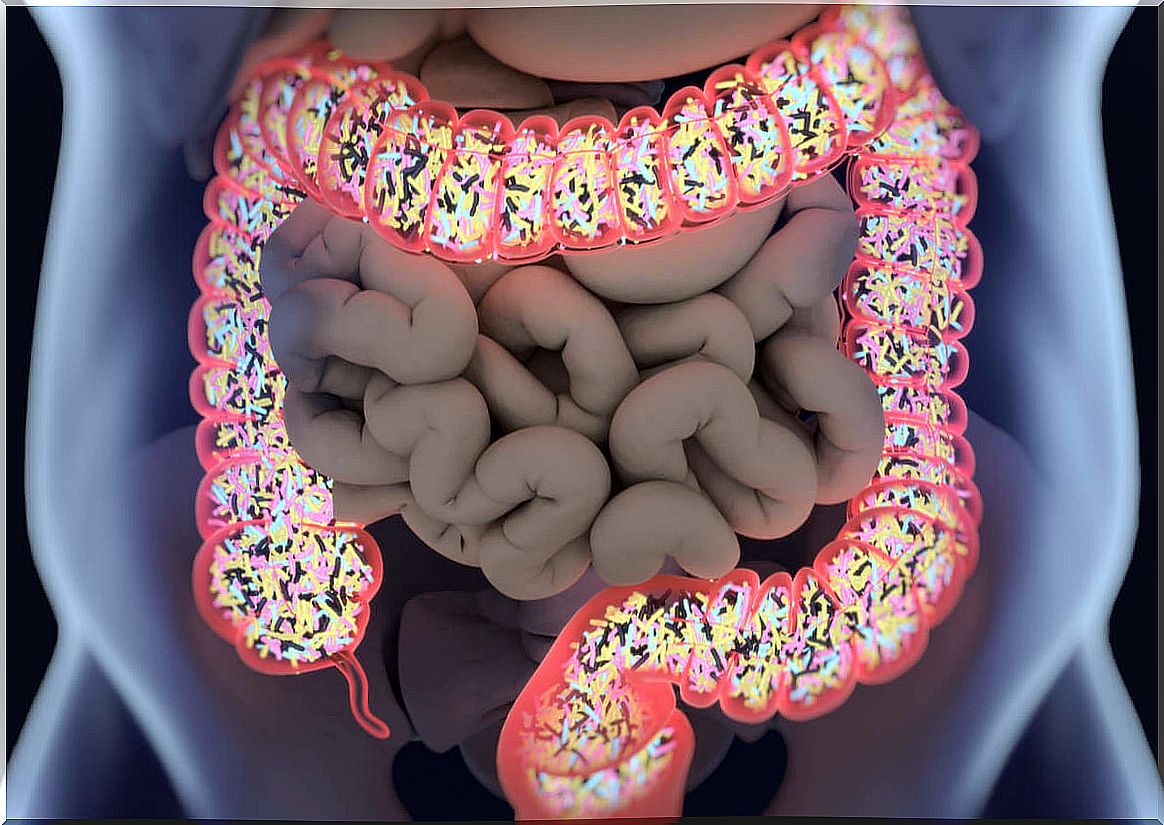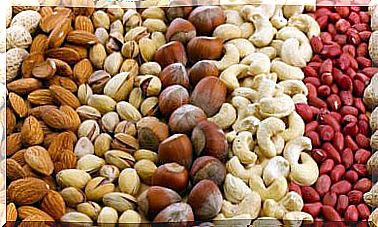How To Take Care Of The Intestinal Flora To Protect The Colon?

Intestinal flora is the set of beneficial microorganisms and bacteria present in the large intestine or colon that help to better absorb nutrients and also defend against various diseases. But do you know how to take good care of your intestinal flora?
Good eating habits keep the intestinal flora normal. As a result, it contributes to the body’s health and well-being. On the other hand, bad eating habits favor the appearance of health problems and colon disease. In this article, we explain everything you should do to prevent this from happening.
Intestinal flora and colon functions

All human beings come into the world without intestinal flora. A mother’s uterus protects the fetus against all kinds of bacteria. Later, in the first months of breastfeeding and feeding, what will be the definitive intestinal flora is constituted.
According to specialists, the human being has in his body about two thousand different bacterial species, of which only 100 can be harmful.
“Several studies demonstrate that bacterial flora has a modulating role in different aspects of digestive function. Thus, intestinal bacteria modulate digestive sensitivity and motility”, says Dr. Jordi Serra.
Intestinal flora functions
According to the article Role of gut flora in health and disease , the functions of gut flora are as follows:
- The defensive function of the microflora includes the “barrier” effect. This means that bacteria that occupy an ecological space or niche prevent foreign bacteria from entering the ecosystem. In other words, the microbiota acts as a protective barrier against pathogens.
- The diversity of genes in the microbial community (microbiome) provides a wide variety of enzymes and biochemical pathways.
- The enteric flora metabolizes indigestible food substrates or residues, endogenous mucus and cellular residues, that is, it helps us to properly synthesize and absorb nutrients from food.
- It favors the synthesis of vitamins like B and K, amino acids and gives us energy.
- Promotes good digestion, which helps prevent episodes of diarrhea and constipation.
According to specialists at the AECC, “the specific function of the ascending and transverse colon is to absorb water and electrolytes (sodium, potassium, etc.) while the function of the descending colon and rectum is to store fecal material until its expulsion through the anus.”
What alters the health of the bacterial flora and, consequently, of the colon?
First of all, you must keep in mind that from the age of 60 on, the bacterial flora is altered and weakened, becoming more vulnerable to various diseases. For this reason, it is recommended to maintain a healthy lifestyle from an early age.
Stress, poor diet, tobacco and alcohol consumption, and negative emotions also affect colon and intestinal flora health to a large extent. Therefore, it is advisable to make the necessary changes so that health is not affected in the short or long term.
Taking antibiotics and other types of medication also weakens the colon and alters the balance of the intestinal flora. Therefore, its use must always be supervised by a physician.
How to take care of the intestinal flora to promote colon health

the best fruits
Fruits fall into the category of prebiotic fibers , food components that nourish bacteria in the intestine to promote their activity. The most recommended fruits are the following:
- Fig
- Grape
- Pear
- Strawberry
- Plum
- Banana
- Apple
probiotics
With this term we refer especially to fermented foods so common in cultures where the best benefits of milk are obtained, leaving aside sugar or the high lactose content. Nutritionist Alicia Acosta highlights the contribution of bifidobacteria in yogurts to improve digestive health.
Probiotics are essential for healthy intestinal flora. The best ones to consume every day are as follows:
- kefir
- Tempeh
- Sauerkraut
- miso soup
- white or greek yogurt
21 grams of fiber per day
It is believed that consuming 21 grams of fiber every day is adequate to take care of the intestinal flora and maintain the body’s balance. For this, you can consume a bowl of oats every day, some fresh fruit (remember that it is better to consume unpeeled fruit in its natural form) and always prefer rye bread instead of bread made with refined white flour. .
Other popular recommendations for taking care of the intestinal flora
According to beliefs, to take care of the intestinal flora you must:
- Ingest a clove of garlic on an empty stomach, as this could strengthen the immune system and eliminate harmful microorganisms from the body.
- Include more onions in meals, as they are also given antibacterial properties.
- Eat for breakfast or snack half papaya with natural yogurt without sugar.
Final considerations
It is important, first of all, to wash all fruits and vegetables thoroughly before consuming them. Bacteria from food usually have very serious consequences for the bacterial flora and for the colon.
You should also drink plenty of water, avoid being sedentary and take care of your emotional life. Enjoy what you like, your free time and your positive relationships. All of this will help you feel better on the inside, and it will be noticed on the outside.









